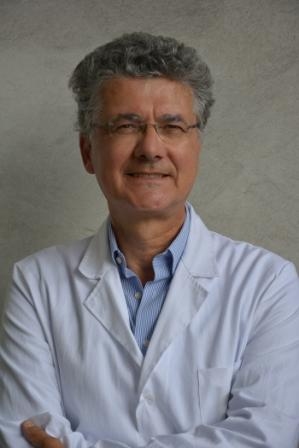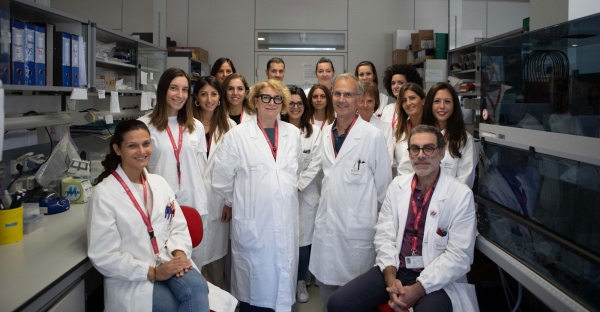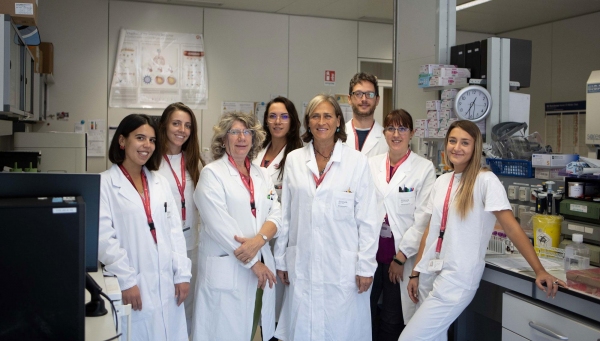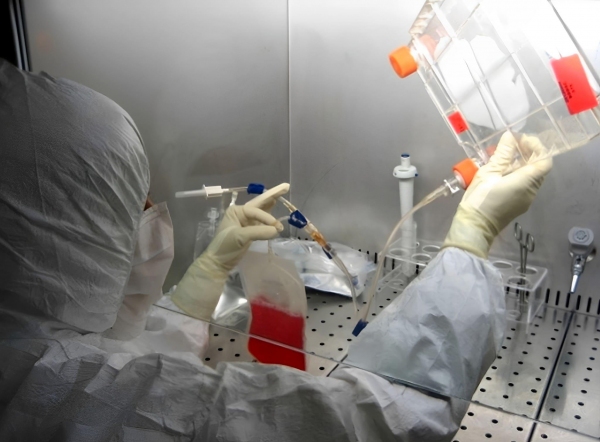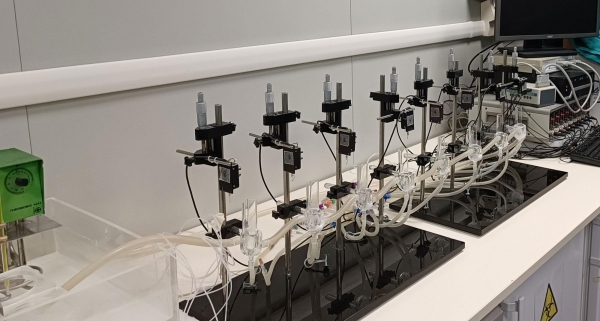Diagnostic and therapeutic innovation in central and peripheral nervous system diseases /
Neurology
Head
Unit
Stem Cells:
Focus of research activity is the knowledge behind what are the degenerative and inflammatory phenomena of muscular dystrophies, regeneration and aging of muscle tissue. In particular, the role of immunity in muscular dystrophies and nanotechnology applied to neurodegenerative diseases are studied. The research team is also involved in several clinical trials on muscular dystrophies
Parkinson's disease and other movement disorders:
The research group's activities focus on trials of new therapies for Parkinson's disease and Multisystem Atrophy, and on basic research of targeted genetic and cellular molecular mechanisms underlying movement disorders, using organoids as cellular models. Other areas of study involve familiarity, dysautonomic aspects, natural history and quality of life of patients with this disorder.
Ischemic and hemorrhagic strokes:
Search for prognosis markers of patients with ischemic and hemorrhagic strokes who are treated in acute care and proteomics and metabolomics on potential therapeutic markers in patients who have had cerebrovascular issues.
Clinical, histological, biochemical, and molecular aspects of neuromuscular diseases:
Focus of the activity is to define the biochemical and genetic causes, with the use of next-generation sequencing (NGS) technologies, of a large group of neurological diseases, and in particular some forms of neuromuscular genetic diseases that include, among others, dystrophinopathies (Duchenne and Becker Muscular Dystrophy, DMD and BMD), Limb Girdle Muscular Dystrophy (LGMD), Congenital Myopathies (CM), metabolic myopathies with altered glucose metabolism (e.g. Glycogenosis), lipid and oxidative metabolism (e.g., Mitochondrial Diseases), neurodegenerative motor neuron diseases with childhood (e.g., Spinal Amyotrophy SMA5q) and adult (e.g., Amyotrophic Lateral Sclerosis) onset. Among the main activities performed is the identification of candidate variants by classical and next-generation sequencing approaches and their subsequent characterization at the transcriptional and protein levels on muscle tissue and primary cell cultures. The use of expanded panels such as clinical or whole-exome sequencing is employed for the discovery of novel molecular defects underlying these diseases.
Mitochondrial diseases:
Research activity is focused on the study of the genetic causes and pathogenetic mechanisms underlying these heterogeneous conditions. Specifically, efforts are focused on the identification of novel molecular defects and genetic causes in adult mitochondrial encephalomyopathies and the study of mitochondrial dysfunction in primary tissues and cell cultures obtained from patients and in newly implemented cellular models to investigate cell-specific aspects of oxidative metabolism deficiency.
Clinical Neuroimmunology:
Research activity is aimed at the assay of major antibodies associated with dysimmune peripheral neuropathies (NPs) such as: chronic inflammatory demyelinating polyneuropathy (CIDP), multifocal motor neuropathy (MMN), demyelinating sensory-motor neuropathy associated with IgM monoclonal gammopathy, Guillain Barré syndrome (GBS), its variants, and Miller Fisher syndrome (MFS).
Study of brain temperature and cerebral perfusion under physiological conditions, in Parkinson's disease and Parkinsonisms and other diseases:
The program involves the study of changes in brain temperature, particularly in Parkinson's disease and Parkinsonisms, on the transmission of heat within the brain, through a patented system within the research group, and on changes in brain perfusion, which is closely related to brain temperature. Because brain temperature is an expression of brain functions, and influences them at the same time, the program also involves modifying temperatures at the brain level, either by acting directly on temperature or on brain perfusion. Studies will then be extended to other pathologies susceptible to thermotherapy such as stroke, neoplasms, perinatal asphyxia, and mitochondriopathies. The program then includes the study of brain structural changes in Parkinson's disease within the ENIGMA consortium.
Varioskan Lux Multimode Microplate Reader
- Columbia University Medical Center, New York, USA
- National Children's Hospital, USA
- Karolinska Institute, Stockholm, Sweden
- Athens Academy, Greece
- University of Bern, Switzerland
- University of Oregon, USA
- Scientific director of Spark Therapeutics, Philadeplphia, USA
- IRCCS Bambino Gesù Hospital, Italy
- Utrecht University Medical Center, University of Utrecht, Netherlands
- Universitair Ziekenhuis Leuven, Belgium
- Institute of Myology, Paris, France
- NYU Movement Disorders, Fresco Institute for Parkinson's Disease, New York University, USA
- Vanderbilt University Medical Center, Nashville, USA
- Cyprus Institute of Neurology and Genetics, Cyprus School of Molecular Medicine
- University of Tampere, Finland
- UCL School of Life and Medical Sciences, London, UK
- Institute of Myology, Pierre and Marie Curie University, Paris, France.
- University of Miami (UM), Miami, Fla.
- Institute of Inflammation and Repair, University of Manchester, Manchester, UK.
- PompeuFabra University, Barcelona, Spain
- Research center, University of Montréal Hospital Center, (CRCHUM), Montréal, Québec, Canada
- AADM/UNAERP muscular dystrophy research center, Ribeirao Preto, SP, BRAZIL
- GrupoNerogenética, Hospital Donostia-UnidadExperimental San Sebastian, Espana
- University of Oxford, UK
- University of Pavia, Italy
- Interuniversity Institute of Myology (IIM), Italy
- I.B.I. S/A, Switzerland
- Polytechnic University of Milan, Italy
- University Hospital of Nice, Nice, France
- Neurocentro della Svizzera italiana, Lugano, Switzerland
- Institute of Genetics and Molecular and Cellular Biology (IGBMC), Illkirch, France University of Strasbourg, Illkirch, France
- Center for Human and Applied Physiological Sciences, School of Basic and Medical Biosciences, Faculty of Life Sciences and Medicine, Guy's Campus, King's College London, London, UK
- BTI Biotechnology Institute, Vitoria-Gasteiz, Alava, SPAIN
- Cincinnati Children's Hospital, Cincinnati, OH, USA
- Genethon Institute, Evry, FRANCE
- Parapléjicos National Hospital, Toledo, SPAIN
- University Hospital Center of Grenoble, FRANCE
- University of São Paulo, São Paulo, BRAZIL
- Hospital for Special Surgery - New York, USA
- University of Massachusetts Medical School, Worcester, MA, USA.
- Massachusetts General Hospital Wang Ambulatory Care Center - Boston, MA, USA
- Methodist Neurological Institute Chair, Department of Neurology - Houston, Texas, USA
- Mayo Clinic Florida, Department of Neuroscience Jacksonville, FL, USA
- Tgen - Translational Genomics Research Institute, Phoenix, AZ, USA
- Boston Children's Hospital - Boston, MA, USA
- Mayo Clinic, Department of Neurology, Rochester
- Iowa State University, Ames, USA
- University of Maryland, Baltimore, USA
- University of Alberta, Edmonton, Canada
- University of Michigan, Ann Arbor, USA
- Sorbonne Universités, Université Pierre et Marie Curie Paris 06, Unité Mixte de Recherche (UMR), Institut du Cerveau et de la Moelle Épinière (ICM), Paris, France
- Institute of Memory and Alzheimer's Disease (IM2A), Department of Neurology, Hȏpital de la Pitié-Salpêtrière, AP-HP, Paris, France
- INSERM, CNRS, UMR-S975, Institut du Cerveau et de la MoelleEpinière (ICM), Paris, France
- Sorbonne University, France
- Pierre and Marie Curie University, France
- University Medical Center of Amsterdam, Netherlands
- Technical University of Munich, Germany
- University of Montreal, Canada
- University of Sydney, Australia
- Saint Louis University, USA
- University of Leuven, Belgium
- University of Barcelona, Spain
- University of Frankfurt, Germany
- University of Ulm, Germany
- King's College - London, UK.
- Institute of Genetics CECAD Research Center University of Cologne Joseph-Stelzmann, Cologne Germany
- Institute of Mass Spectrometry College of Medicine Grove Building University of Swansea Wales, UK
- University of Leicester, United Kingdom
- King Saud University, Kingdom of Saudi Arabia Riyadh (KSA)
- Laboratory for Muscular Dystrophy Research, Neuromuscular Center/ALS, Carolinas Medical Center, Charlotte, North Carolina, USA
- University of Tübingen, Germany
- VRIJE Universiteit Brussel, Belgium
- National Children's Hospital, Columbus, USA
- Department of Neurology, Mayo Clinic, Florida, USA
- National Children's Medical Center, University of Washington, USA
- University of British Columbia, Canada
- Ottawa Hospital Research Institute, Canada
- Case Western Reserve University, USA
- George Washington University School of Medicine, USA
- Northwestern University, USA
- Stanford University, USA
- Harvard University, USA
- School of Biological Sciences, Monash University, Melbourne, Australia
- University of Massachusetts Medical School, Department of Neurology Worcester, MA, USA
- University of St. Gallen, Switzerland
- EUAN Mac Donald Center for Motor Neurone Disease Research University of Edinburgh, UK
- Monash Institute of Cognitive and Clinical Neuroscience, Monash University, Melbourne, Australia
- CECAD Research Center Institute of Genetics, Germany
- University of Cologne, Cologne, Germany
- Clinical unit of infectious diseases and microbiology. Valme Hospital, Seville, Spain
- Maimonides Institute for Biomedical Research (IMIBIC)-University Reina Sofia, Spain
- Hospital-University of Cordoba, Spain
- University of Jaen, Spain
- UCL Institute of Genetics, Department of Genetics, Evolution and Environment, University College London, UK
- European Institute of Oncology (IEO), Milan, Italy
- UCL Institute of Neurology, Queen Square, London, United Kingdom
- Montreal Neurological Institute of McGill University, Canada
- Enigma Consortium
Stem Cell team: 1 neurologist, 2 biologists, laboratory technicians, 1 health research biologist, 1 university research bioengineer, 5 PhD student biologists; 5 biologist fellows
Parkinson's and other movement disorders team: 7 neurologists ( including 4 with PhD and 1 PhD student), 2 biologists, 1 study coordinator
Ischemic and hemorrhagic strokes team: 3 neurologists
Clinical, histological, biochemical and molecular aspects of neuromuscular diseases team: 4 neurologists, 3 biologist, 2 biotechnologists, 2 laboratory technicians, 1 study coordinator
Mitochondrial disease team: 2 neurologists, 1 biologist, 2 biotechnologists, 1 laboratory technician
Clinical Neuroimmunology team: 1 neurologist, 1 biologist, 1 laboratory technician
Study of brain temperature and cerebral perfusion team: 1 neurologist, 1 physicist, and 1 bioengineer
—
Other activities in this Research Line
Diagnostic and therapeutic innovation in central and peripheral nervous system diseases
Geriatrics
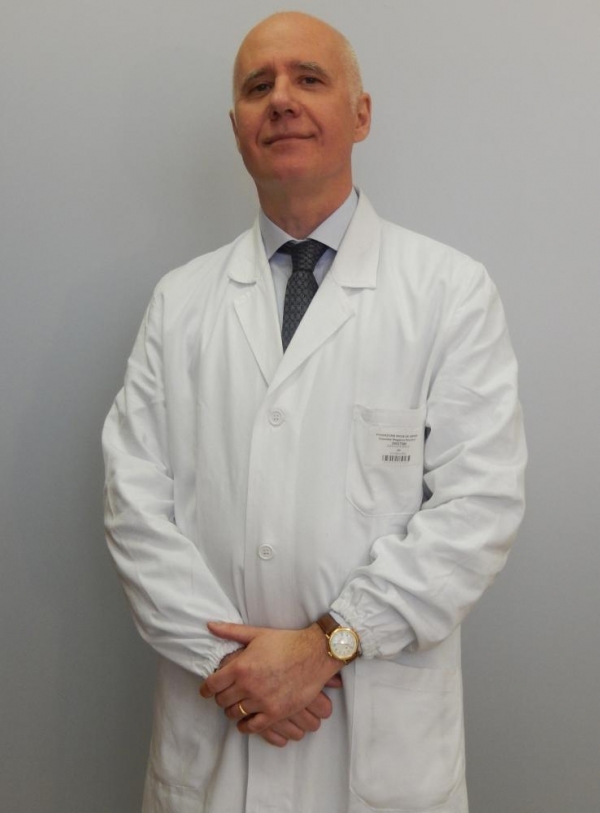
Tiziano Lucchi
Maxillofacial Surgery and Odontostomatology
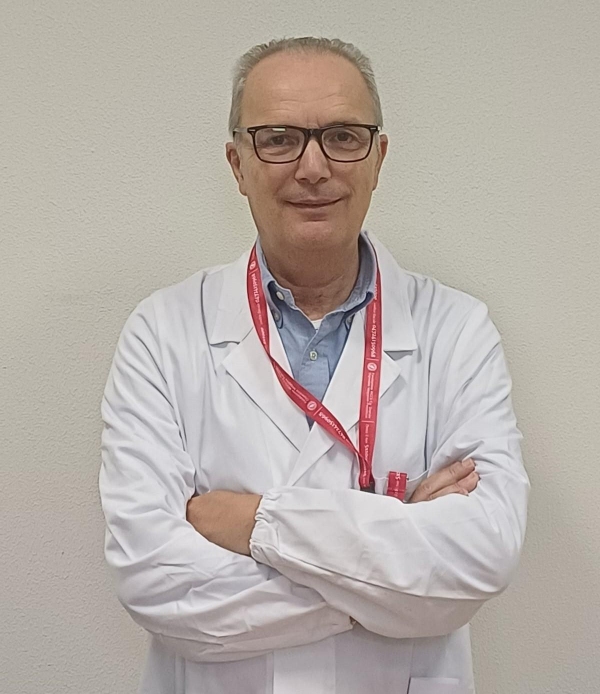
Diego Rossi
Neonatology and Neonatal Intensive Care Unit
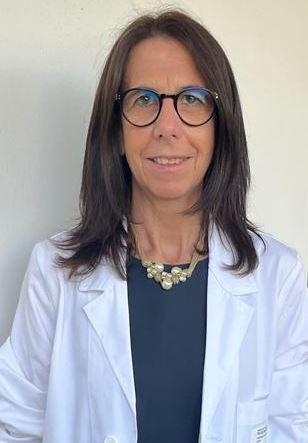
Monica Fumagalli
Neurophysiopathology
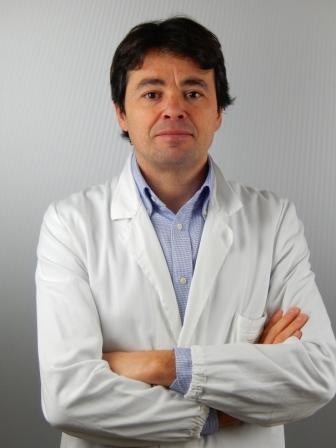
Filippo Cogiamanian
Neurology - Neurodegenerative Diseases
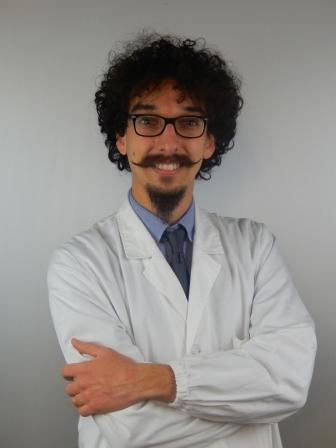
Andrea Arighi
Neurology - Neuromuscular and Rare Diseases

Stefania Corti
Neuroradiology

Fabio Maria Triulzi
Neurosurgery
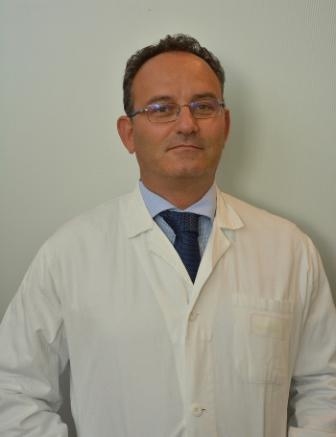
Marco Locatelli
Ophthalmology
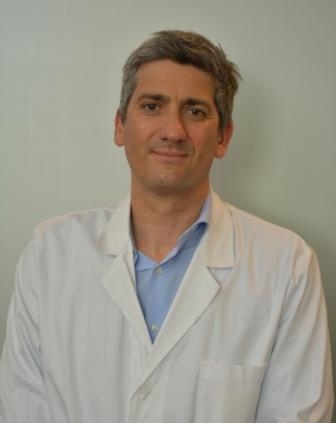
Francesco Viola
Otolaryngology and Cervico-Facial Surgery
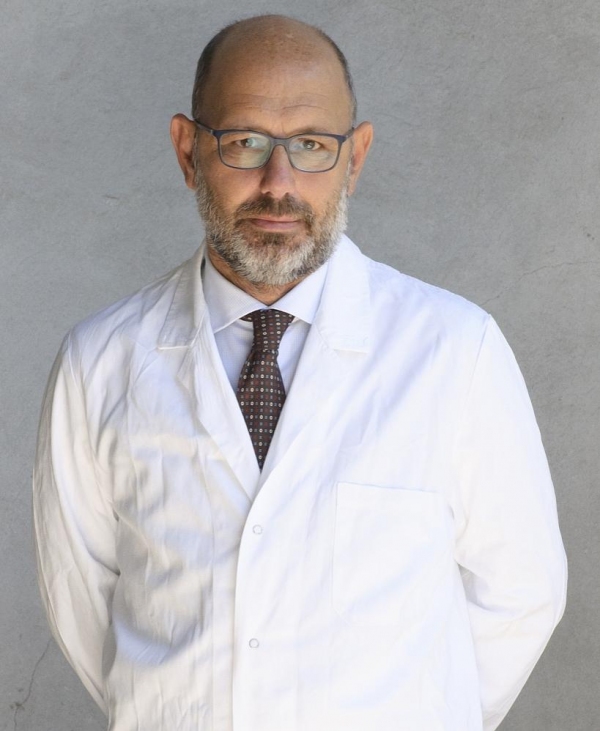
Lorenzo Pignataro
Maxillofacial Surgery and Odontostomatology

Diego Rossi
Psychiatry
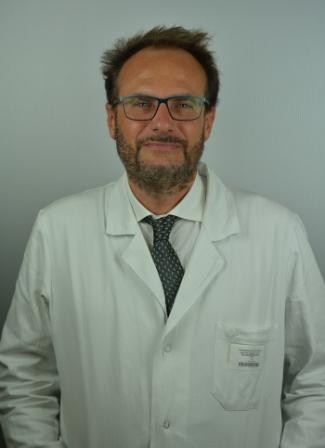
Paolo Brambilla
